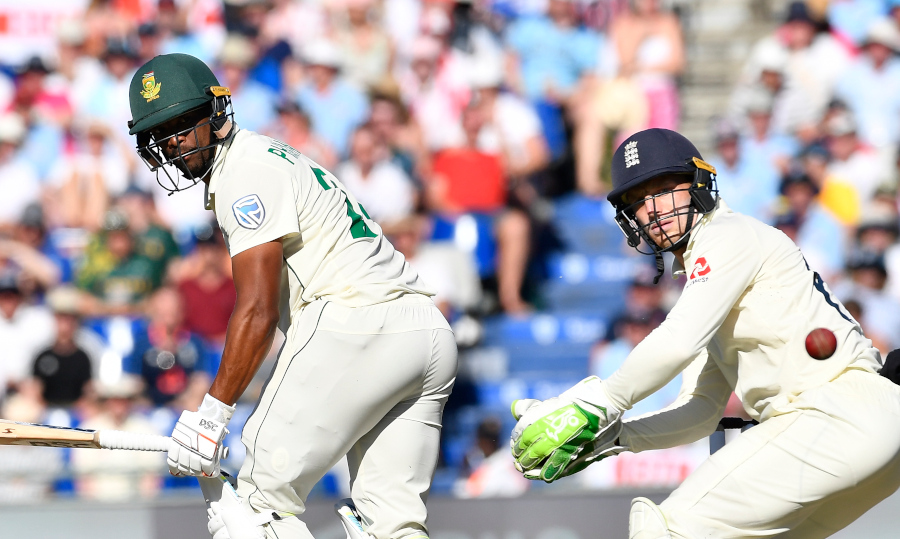The sledging incident between Jos Buttler and Vernon Philander has demonstrated the need for the ICC to apply its rules with greater consistency.
Stump microphones are central to the incident, which would never have been brought to public attention had Buttler not moved into range of the sound-capturing device.
The ICC and its officials have played fast and loose with their use of the sound recordings, at times sanctioning players for relatively tame offences and allowing incidents of verbal abuse to go unchecked.
Verbal sparring between players has been part of the game for as long as anyone has followed it, but the way officials deal with incidents has varied widely.
New magazine issue: Why De Kock must bat at four
Punishments vary from incident to incident and verbal abuse conducted in languages that umpires are not proficient in go unpunished all the time.
Kagiso Rabada famously earned a suspension during the 2017 tour to England for a send-off that contained profanity. Since then, South African cricket fans and perhaps even the Proteas themselves have felt hard done by.
Sanctions against players for audible obscenities are rarer than incidents of sledging or player abuse because the response is driven by broadcasters, who can receive official complaints about airing foul language during a match.
Sky Sports issued an apology for allowing the Buttler vs Philander incident to be aired, although there was little they could do to avoid it.
Stump-microphone sensitivity has also come under scrutiny because of sanctions handed to players, with many pundits calling for the mics to be turned down between deliveries.
Broadcasters are loathe to do this because the microphones add to the experience of watching cricket on TV – not only for being able to hear edges but also for some colour in between deliveries.
Cricket is now locked in a struggle between showcasing an authentic match experience and sanitising the sport to make it palatable to a wider audience.
The ICC will always struggle to find a balance between what constitutes verbal abuse and what is harmless banter between combatants. The only solution is to find ways to apply the rules consistently.
Unfortunately, determining such things is subjective and pinned to the vague and nebulous concept of the spirit of cricket, which has as many definitions as the game has fans.







